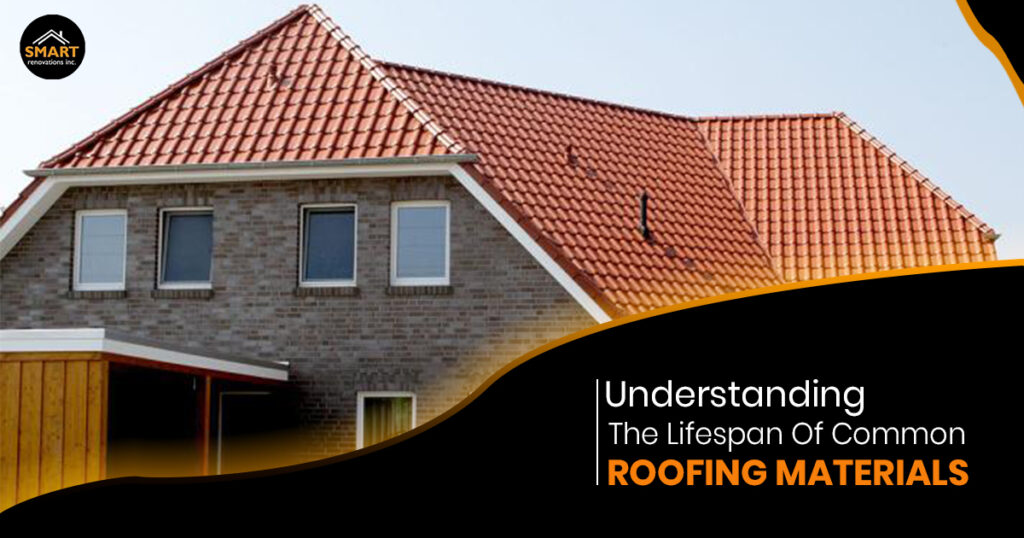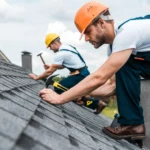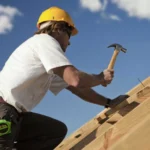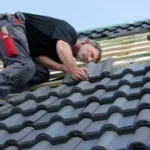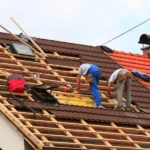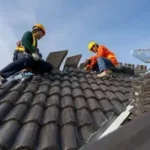One of the most crucial aspects of home maintenance is the roof. The roof not only protects you from the elements but also contributes to your home’s overall aesthetic appeal. Understanding the lifespan of common roofing materials can help homeowners make informed decisions about their roofing needs. In this blog, we will explore various residential flat roof materials, their lifespans, benefits, and considerations for homeowners.
Types of Residential Flat Roof Materials
1. EPDM (Ethylene Propylene Diene Monomer)
EPDM is a popular choice for flat roofs due to its durability and cost-effectiveness. This rubber roofing material is resistant to UV radiation, hail, and extreme temperatures, making it an excellent option for various climates.
- Lifespan: Typically, EPDM roofing can last between 25 to 30 years with proper maintenance.
- Benefits: EPDM roofing is lightweight, easy to install, and requires minimal maintenance. It can also be recycled at the end of its lifespan, making it an eco-friendly option.
2. TPO (Thermoplastic Polyolefin)
TPO is another widely used roofing material for residential flat roofs. It is known for its energy efficiency and reflects sunlight, which can help lower cooling costs in warm climates.
- Lifespan: TPO roofs generally last around 15 to 20 years.
- Benefits: TPO is resistant to mold, dirt, and punctures. Its reflective properties can significantly reduce energy consumption, making it a sustainable choice for homeowners.
3. PVC (Polyvinyl Chloride)
PVC roofing is a single-ply membrane that is known for its strength and flexibility. This material is particularly effective for buildings that require a long-lasting and durable roofing solution.
- Lifespan: PVC roofing can last between 20 to 30 years with proper care.
- Benefits: PVC is resistant to chemicals and fire, making it an excellent choice for commercial and industrial buildings. It also offers great waterproofing capabilities.
4. Modified Bitumen
Modified bitumen is a hybrid roofing material that combines traditional asphalt with modified polymers to enhance its performance. It is installed using either torch-down or self-adhesive methods, providing versatility in its application.
- Lifespan: Modified bitumen roofs typically last around 15 to 20 years.
- Benefits: This material is durable and resistant to extreme weather conditions. It can also be applied over existing roofing systems, providing a cost-effective solution for homeowners.
Factors Affecting Lifespan of Roofing Materials
1. Climate and Weather Conditions
The lifespan of roofing materials can significantly vary based on the local climate. Areas with extreme temperatures, heavy rainfall, or frequent snow can cause wear and tear on roofing materials, reducing their overall lifespan. Choosing materials that are suited for your specific climate is essential for maximizing longevity.
2. Installation Quality
The lifespan of any roofing material is also heavily influenced by the quality of installation. Poor installation can lead to leaks, improper drainage, and other issues that can shorten the lifespan of the roof. Hiring experienced professionals, like those at Smart Renovation Inc, ensures that your roofing is installed correctly, adhering to industry standards.
3. Maintenance
Regular maintenance is crucial for extending the lifespan of any roofing material. This includes routine inspections, cleaning debris, and addressing minor repairs promptly. Neglecting maintenance can lead to significant issues that may require costly repairs or premature replacement.
Choosing the Right Roofing Material
When selecting the right residential flat roof materials, consider the following factors:
1. Budget
Your budget will play a significant role in determining which roofing material is most suitable for your home. While some materials may have a lower upfront cost, they may not last as long, leading to higher long-term expenses.
2. Aesthetic Appeal
The appearance of your roof can impact your home’s overall curb appeal. Consider materials that complement your home’s architecture and style. Many modern roofing materials come in various colors and finishes, allowing for customization.
3. Energy Efficiency
Choosing energy-efficient roofing materials can significantly reduce your energy bills. Look for materials with reflective properties or those that provide excellent insulation to improve your home’s energy efficiency.
4. Environmental Impact
In today’s eco-conscious world, considering the environmental impact of your roofing choice is essential. Many modern roofing materials are designed to be environmentally friendly, whether through energy efficiency, recyclability, or sustainable manufacturing practices.
Conclusion
Understanding the lifespan of common roofing materials is essential for making informed decisions about your home. By considering factors such as climate, installation quality, and maintenance, homeowners can select the right residential flat roof materials that will provide durability and longevity. At Smart Renovation Inc, we specialize in helping homeowners choose the best roofing solutions for their needs. Whether you’re considering EPDM, TPO, PVC, or modified bitumen, we are here to guide you through the process and ensure a successful installation.
Investing in the right roofing material not only enhances the protection of your home but also contributes to its value and aesthetic appeal. Don’t hesitate to reach out to us for more information on roofing options tailored to your specific needs! With the right materials and maintenance, your roof can provide lasting protection for years to come, making it a worthy investment for any homeowner.
Contact Smart Renovation Inc today! Check our google store: Smart Renovation

